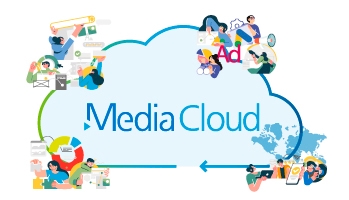Let’s go back to treating advertising as newsworthy

The earth is moving under our feet at this time of seismic technological change. Courageous and imaginative professionals are needed to reinvent journalism. I’m a journalist and I know that what I’m going to suggest here will cause alarm or, perhaps, a sneer of condescending disapproval. But this is also a time to break free of clichés. Why don’t we stop seeing advertising as the enemy of editorial content, the toll to be paid to receive our salaries as journalists? Why don’t we go back to treating advertising as newsworthy wherever this is possible?
Recently a Spanish colleague, a great friend of mine, told me something that happened with a journalist who works at his digital newspaper, who was full of praise for a restaurant where he had eaten the night before. He had spoken to the owner, a young entrepreneur who, through government aid plus funds put together from his severance pay and unemployment benefit, had set up the restaurant with good taste, fair prices and, above all, originality. I’m not going to describe here the idea behind this business; instead, I want to concentrate on the conversation that then took place between my friend and the journalist.
‘And did you offer him to chance to advertise in the newspaper?’ ‘No,‘ replied the journalist, almost offended, ‘I don’t sell advertising space: I’m a journalist.’
‘That’s why I mention it, because you’re a journalist. You had before you a human interest story; that of a young person with a good and original idea - as you’ve told me - that could encourage many people.’ ‘Yes, if you put it like that, there could be an opportunity for a report or an interview in the People or Entrepreneurs section. But what’s that got to do with selling advertising?’
‘With this possible information, we would give him advertising, good advertising, based on true information, checked by you personally. Don’t you think it’s fair that, in return, the newspaper should be paid something so that it can continue to carry out its social function?’ ‘But I doubt he’d have any money for that, he’s just starting.’
‘There’s always a way. For example, do you think that if you explain to him that it’s not an advertorial, that you are really interested in his story and his idea, you could convince him to give you a daily percentage for each customer that he has obtained as a result of your information?’ ‘How do you mean?’
‘It’s a win-to -win formula. Strictly speaking, you don’t sell your report, what you are doing is providing information that is publicly useful, with a commercial consequence, through which you aid his business and, in return, he helps you to continue with that of your newspaper, which is your activity. Doesn’t that seem fair?’ ‘If you look at it like that,‘ the journalist had to admit, ‘it appears ethical’.
- ‘It is. Don’t forget that that’s how advertising began, as true commercial information with a public use.’ ‘And how can we make it work in this case?’ he asked, more convinced.
‘Speak to those in the Marketing and Sales Departments, I bet they can come up with something, using coupons or the like.’ And that’s what the journalist did .... and the net result was that he made money for his company.
My friend enjoyed himself immensely telling me his tale. ‘His mentality has changed! His marketing and sales colleagues are no longer his enemies; he even exchanges ideas with them. And he has discovered that Advertising also has a news element, which one has to know how to exploit, not just ethically but also shrewdly. His example has made others think, so much so that in Newsroom meetings it is now common to explore possible synergies between news stories and marketing-sales actions. The idea that we are all in the same boat together is beginning to take hold.
I found this to be a very good lesson, which is why I wanted to share it with the reader who manages to reach the end of this blog. And, by the way, congratulations on having done so!




